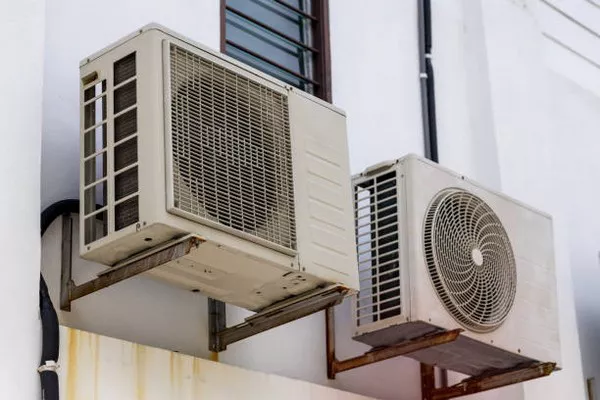Refrigerator compressors serve as the heart of refrigeration systems, playing a crucial role in the cooling process. These mechanical devices compress refrigerant gas, increasing its pressure and temperature, before circulating it through the system. As the compressed gas travels through the condenser coil, it releases heat and condenses into a liquid. This liquid then flows through the expansion valve, where it undergoes a pressure drop, resulting in a rapid cooling effect. Finally, the cooled refrigerant enters the evaporator coil, absorbing heat from the interior of the refrigerator, and the cycle repeats.
Common Reasons for Compressor Failures:
Despite their importance, refrigerator compressors can fail due to various reasons:
Overheating: Continuous operation or insufficient airflow around the compressor can lead to overheating. This may cause the motor winding insulation to degrade, resulting in motor burnout.
Electrical Issues: Faulty wiring, power surges, or electrical component failure can disrupt the compressor’s operation, leading to failure.
Refrigerant Leaks: Refrigerant leaks can occur due to corrosion, vibration, or physical damage to the refrigeration system. Low refrigerant levels can cause the compressor to work harder, leading to premature failure.
Oil Contamination: Contamination of compressor oil with moisture, acids, or debris can reduce lubrication effectiveness, leading to increased friction and wear on internal components.
Signs of Compressor Failure:
Recognizing the signs of compressor failure is essential for timely intervention. Common symptoms include:
Inadequate Cooling: If the refrigerator fails to maintain proper temperature despite the compressor running continuously, it may indicate compressor inefficiency or failure.
Unusual Noises: Grinding, rattling, or banging noises emanating from the compressor could signify mechanical issues or impending failure.
Excessive Heat: A compressor that feels excessively hot to the touch may be experiencing overheating, potentially leading to failure.
Tripped Breaker: If the refrigerator repeatedly trips the circuit breaker, it may indicate electrical issues, possibly affecting the compressor.
Preventive Measures:
Implementing preventive maintenance measures can extend the lifespan of refrigerator compressors:
Clean Condenser Coils: Regularly clean the condenser coils to ensure efficient heat exchange and prevent overheating.
Proper Ventilation: Ensure adequate airflow around the compressor by maintaining proper clearance from walls and other obstructions.
Monitor Refrigerant Levels: Periodically check for refrigerant leaks and recharge the system as needed to maintain optimal levels.
Replace Compressor Oil: Follow manufacturer recommendations for replacing compressor oil to prevent contamination and ensure proper lubrication.
Troubleshooting Guide:
When faced with compressor issues, follow these steps to diagnose common problems:
Check Power Supply: Ensure the refrigerator is receiving power and that the circuit breaker hasn’t tripped.
Inspect Wiring: Examine the electrical connections for signs of damage or loose connections.
Test Capacitor: Use a multimeter to test the capacitor for continuity and proper functioning.
Check for Refrigerant Leaks: Use a refrigerant leak detector or soapy water solution to identify and repair leaks.
Repair vs. Replacement:
Deciding whether to repair or replace a faulty compressor depends on various factors:
Age of Refrigerator: If the refrigerator is nearing the end of its lifespan, investing in a new compressor may not be cost-effective.
Extent of Damage: Minor issues such as electrical faults or refrigerant leaks can often be repaired, whereas severe damage or motor burnout may necessitate replacement.
Cost of Repair: Compare the cost of repair with the price of a new compressor to determine the most economical option.
Cost Considerations:
The cost of repairing or replacing a refrigerator compressor can vary depending on factors such as:
Labor Costs: The cost of professional labor for diagnosing and repairing the compressor.
Replacement Parts: The price of replacement parts such as capacitors, relays, or compressor units.
Service Charges: Additional charges for service calls, diagnostics, and refrigerant recharge.
Professional Assistance:
Seek professional help if you encounter complex compressor issues or lack the necessary expertise:
Choose a Reliable Service Provider: Select a licensed and experienced technician with a track record of quality service and customer satisfaction.
Request Quotes: Obtain multiple quotes from different service providers to compare costs and services offered.
Ask for Warranty: Inquire about warranty coverage for repairs or replacement parts to ensure long-term reliability.
See Also Mastering Your 3-Gallon Air Compressor: A Comprehensive Guide
Conclusion:
Refrigerator compressors play a vital role in maintaining optimal cooling performance. Understanding the common causes of compressor failure, recognizing signs of impending issues, and implementing preventive maintenance measures can help prolong the lifespan of these critical components. When faced with compressor problems, carefully evaluate repair versus replacement options and seek professional assistance when needed to ensure efficient and reliable refrigeration performance. By prioritizing proper maintenance and timely interventions, homeowners can avoid costly repairs and enjoy uninterrupted cooling comfort for years to come.

